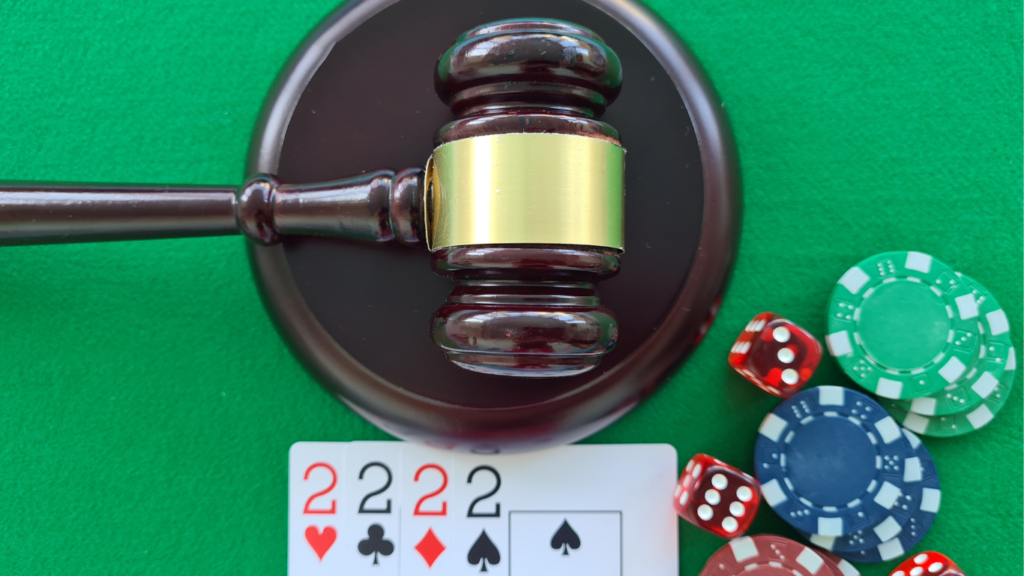The Current State of Gambling Regulation
Gambling regulations differ globally, reflecting varying priorities of governments. While some countries have strict laws, others adopt a more lenient approach.
Overview of Existing Regulations
Existing gambling regulations aim to balance industry growth with public protection. Common measures include:
- licensing for operators
- age restrictions
- advertising limitations
For example, the United Kingdom enforces comprehensive licensing through its Gambling Commission, ensuring operators meet strict standards. In contrast, the United States exhibits a mix of regulated and unregulated markets, with each state deciding its own rules. These regulations often focus on preventing underage gambling and promoting responsible gaming practices, although enforcement and effectiveness vary.
Variations Across Different Countries
Countries exhibit diverse regulatory frameworks, each reflecting cultural and economic contexts. In Australia, stringent measures like self-exclusion programs target problem gambling. Singapore imposes severe restrictions on local citizens while welcoming tourists to its casinos. Conversely, countries like Macau encourage the gambling industry, resulting in a major economic contributor controlled by robust oversight aimed at maintaining integrity and fair play. Meanwhile, in Sweden, state monopoly tightly controls the gambling market, ensuring a focus on public welfare over profit.
The Case for Stricter Regulation
Stricter regulations can address various social and economic issues linked to gambling. By tightening control, governments could mitigate the negative consequences associated with the gambling industry.
Social and Economic Impacts
- Gambling often leads to adverse social impacts, such as increased crime rates and family breakdowns, particularly when regulation is lax.
- Economic costs are substantial, with problem gambling incurring healthcare costs and reduced workplace productivity.
- A study by the National Council on Problem Gambling found that the U.S. loses approximately $7 billion annually from problem gambling.
- Stricter regulations may help reduce these figures by limiting gambling access and encouraging responsible practices.
Protecting Vulnerable Populations
Vulnerable groups, including minors and individuals with low income, frequently face exploitation in poorly regulated gambling environments. Stricter regulations like stringent age verification and financial spending caps can safeguard these populations. Such measures are crucial in creating a fair and secure gambling landscape. For instance, online gambling platforms could implement more robust identity checks to prevent underage gambling.
Mitigating Gambling Addiction

Gambling addiction remains a significant concern, with millions affected worldwide. Stricter regulations can curb this issue by mandating self-exclusion programs and regulating advertising to reduce harmful exposure. Jurisdictions can require operators to provide resources for addiction support. Countries like Sweden already enforce these measures, offering insight into their potential success. Enhanced oversight could prevent the escalation of gambling-related harm.
The Case Against Stricter Regulation
Regulating gambling more strictly may not be the optimal solution. Here’s why stricter rules could be more harmful than beneficial.
Economic Contributions of the Gambling Industry
The gambling industry contributes significantly to the economy. In 2022, the global gambling market generated $711.4 billion in revenue. This economic activity provides jobs and taxation benefits. For instance, in Nevada, over $870 million in state tax revenue comes from gambling annually. Limiting the industry’s growth through stricter regulations might reduce these contributions.
Potential for Illegal Gambling Markets
Strict regulation can drive gambling underground. When legal avenues become restricted, illegal gambling markets expand, posing greater risks to players due to a lack of oversight. In countries with heavy restrictions, illegal markets often flourish, leading to inadequate protections and increased crime.
Individual Freedom and Responsibility
Restrictive regulations can infringe on personal freedoms. Adults should be able to make their own choices about gambling, considering they are aware of the risks involved. It’s crucial to balance regulation with individual responsibility, allowing people the liberty to engage in gambling responsibly.
Balancing Regulation and Freedom
Debating the regulation of gambling involves a delicate balance between oversight and individual rights. Striking this balance requires effective measures that don’t overly restrict consumer freedoms.
Responsible Gambling Initiatives
Governments and organizations have developed responsible gambling programs aimed at reducing harm. These include educational campaigns that raise awareness about the risks and signs of gambling addiction. Offering self-assessment tools allows gamblers to evaluate their habits. By providing these resources, the focus remains on empowering individuals with information. For example, Australia’s self-exclusion options enable individuals to voluntarily restrict their gambling activities by banning themselves from venues. This approach limits exposure without blanket prohibition.
Encouraging Safe Gambling Practices
Promoting safe gambling involves setting minimum standards operators must follow. These standards ensure accountability in protecting players. Mandating operator transparency regarding odds and revenues helps consumers make informed decisions. Enforcing restrictions on misleading advertising prevents potential exploitation. In Sweden, requiring licensees to offer deposit limits exemplifies how structured guidance can enhance gambler safety. Such measures foster an environment where individuals can engage responsibly, complementing freedom with necessary precautions.



 Lawerencer Cookanera – Founder & Chief Editor
As the driving force behind Casino Champs Fortune, Lawerencer Cookanera founded the platform with a mission to empower casino enthusiasts by providing them with well-researched, insightful content. Lawerencer brings years of experience in the casino industry, overseeing the editorial strategy to ensure high-quality, trustworthy content across a variety of topics. From uncovering the mechanics of progressive jackpots to delivering in-depth guides on how to play and win big, he ensures every piece of content aligns with the site’s vision. Lawerencer is dedicated to fostering a responsible gaming environment, offering readers practical advice and expert insights that elevate their casino experience.
Lawerencer Cookanera – Founder & Chief Editor
As the driving force behind Casino Champs Fortune, Lawerencer Cookanera founded the platform with a mission to empower casino enthusiasts by providing them with well-researched, insightful content. Lawerencer brings years of experience in the casino industry, overseeing the editorial strategy to ensure high-quality, trustworthy content across a variety of topics. From uncovering the mechanics of progressive jackpots to delivering in-depth guides on how to play and win big, he ensures every piece of content aligns with the site’s vision. Lawerencer is dedicated to fostering a responsible gaming environment, offering readers practical advice and expert insights that elevate their casino experience.
